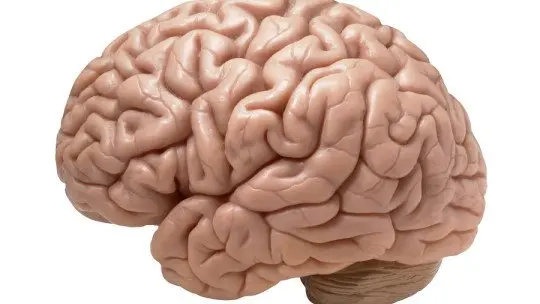Love is a feeling that can trigger a wide range of emotions and behaviors in people. However, when one of the members of the couple has Attention Deficit Hyperactivity Disorder (ADHD), love dynamics can take on a new dimension. ADHD is a neurobiological disorder that affects attention span, impulsivity and hyperactivity, and is estimated to affect approximately 4-5% of adults worldwide.
In this PsychologyFor article we will explore What is a person with ADHD like in love? , examining its characteristics in couple relationships. We will also identify the symptoms of ADHD that can negatively affect the relationship and offer effective strategies to address ADHD in the relationship.
What is a person with ADHD like when they fall in love?
The experience of a person with Attention Deficit Hyperactivity Disorder (ADHD) falling in love is unique, however, there are some characteristics that usually arise from this condition. First, people with ADHD They tend to experience intense emotions. That is, when they fall in love, this emotional intensity is magnified, resulting in passionate passion and enthusiasm in the relationship.
Additionally, ADHD can lead to hyperfocal state in which the person focuses too intensely on their partner. This manifests itself in a considerable dedication of time and energy to the relationship, focusing on the loved one in a way that can be almost obsessive.
Impulsivity, another characteristic symptom of ADHD, can also influence people with this disorder in their romantic relationships. They may have a tendency to act impulsively, surprising their partner with spontaneous romantic gestures or making quick decisions without much thought. However, remember that these characteristics do not apply to everyone with ADHD, as each person may experience it differently. Here you will find more information about the Types of ADHD and their characteristics.

What symptoms of ADHD negatively affect the relationship?
There are several symptoms of Attention Deficit Hyperactivity Disorder (ADHD) that can negatively affect a relationship. Below are some of the most common symptoms and their impact on relationship dynamics:
- Difficulty paying attention: People with ADHD often have difficulty staying focused on a conversation or activity, which can lead to them being easily distracted during important moments in the relationship. This can generate frustration and make effective communication between the couple difficult.
- Impulsiveness: Impulsivity can manifest itself in hasty decisions or actions without thinking about the consequences. In a relationship, this can generate conflicts if impulsive decisions are made without consulting or considering the feelings and needs of the other.
- Hyperactivity: Although hyperactivity may be more evident in childhood, in some cases it persists into adulthood. Constant physical and mental turmoil can make it difficult to relax and intimacy in the relationship, as well as create difficulty finding moments of calm and emotional connection.
- Disorganization: People with ADHD often have difficulty maintaining organization and time management. This can lead to situations in which important dates are forgotten, plans are canceled or commitments are broken, generating feelings of frustration and disappointment in the couple.
- Communication problems: The combination of difficulties paying attention and impulsivity can affect communication in the relationship. Frequent interruptions, difficulty actively listening, or a tendency to speak without a filter can make it difficult to express feelings and understand each other.
In this article you will find other Symptoms of ADHD in adults.
How to address ADHD in a relationship
Addressing Attention Deficit Hyperactivity Disorder (ADHD) in a relationship requires understanding, empathy and mutual collaboration. Here are some effective strategies for addressing ADHD in your relationship:
- Education and knowledge: Both members of the couple should educate themselves about ADHD, its symptoms and its impact on the relationship. Understanding the specific difficulties associated with the disorder will help generate empathy and avoid misinterpretations of behaviors.
- Honest communication: Establishing clear and open communication is essential. Both of you should feel safe to express your needs, concerns and emotions. Establishing regular times to talk and listen to each other can strengthen emotional connection.
- Organization: Creating routines and structure can be beneficial for people with ADHD. Planning activities together, setting regular schedules, and using visual or technological reminders can help you stay organized and minimize forgetfulness.
- Shared commitment: Both partners must commit to addressing ADHD together. This involves working as a team to find solutions and strategies that work for both of you. Shared responsibility and collaboration in managing the disorder will strengthen the relationship.
- Set goals and priorities: Identifying individual and couple goals and priorities will help maintain focus and avoid distractions. Setting realistic goals and breaking them down into smaller tasks will make it easier to plan and achieve your goals.
- Professional support: Considering seeking professional support may be beneficial. A therapist specialized in ADHD can help the couple better understand the disorder, develop coping strategies, as well as improve communication and management of difficulties.

This article is merely informative, at PsychologyFor we do not have the power to make a diagnosis or recommend a treatment. We invite you to go to a psychologist to treat your particular case.
If you want to read more articles similar to What are people with ADHD like in love? we recommend that you enter our Clinical Psychology category.
Bibliography
- Américo, J., and Reyes, E. (2010). ATTENTION DEFICIT AND HYPERACTIVITY DISORDER (ADHD) IN ADULTS (Bibliographic review)
- Barkley, R.A., Murphy, K.R. (2011). The Nature of Executive Function (EF) Deficits in Daily Life Activities in Adults with ADHD and Their Relationship to Performance on EF Tests. J Psychopathol Behav Assess 33, 137–158. https://doi.org/10.1007/s10862-011-9217-x









